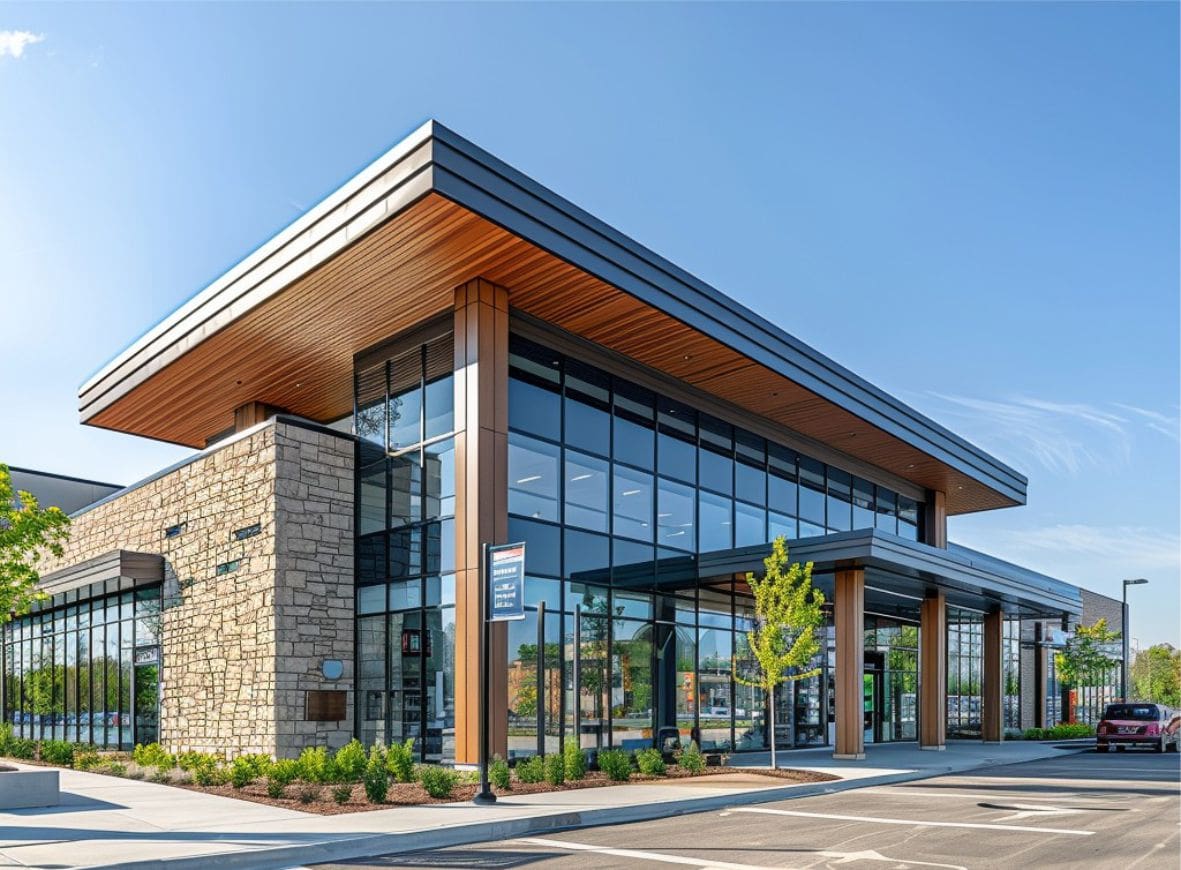Commercial conveyancing is the legal process of transferring property ownership from one entity to another in the context of business real estate transactions. Learn about the definition, purpose, and key steps of commercial conveyancing. We will cover contracts and leases, along with typical issues encountered in commercial conveyancing, such as title disputes and environmental concerns.
Understanding Commercial Conveyancing
Commercial conveyancing encompasses legal services related to the transfer of commercial property. They guarantee a smooth and legally sound transfer of commercial property, covering a wide range of legal aspects. It is a critical component of real estate law that is necessary for buyers and sellers, encompassing tasks such as pre-purchase due diligence, contract signing, and title deed filing.
Definition and Purpose
Commercial conveyancing is the legal process of transferring ownership or interest in commercial property from one entity to another, confirming all legal aspects of the property transactions are in order. The process covers a variety of legal services related to the transfer of commercial property, such as:
- conducting searches to confirm property title,
- drafting and reviewing contracts,
- processing financial transactions,
- registering deeds.
The primary role of commercial conveyancing is to secure all legal documents are correctly signed and that the title is clear, indicating there are no claims against the property. Adhere to real estate and local laws to protect the rights of the parties.
The Process of Commercial Conveyancing
Commercial conveyancing is a multi-step process that requires thorough administration of procedures and coordination among various parties for efficient and legitimate completion of property transactions.
Key Steps
The most important steps in the commercial conveyancing process include:
- Performing due diligence
- Drafting and negotiating contracts
- Confirming all regulatory and compliance requirements are met.
In the property search step, the buyer’s conveyancing lawyer inspects the title deeds, land registry records, and conducts searches for any legal issues or restrictions, while the seller’s conveyancer provides the necessary documents and information about the property.
After completing due diligence, both parties can proceed to the preparation of contracts, which outline the terms of the sale. Property lawyers play an integral role in all contract details, guaranteeing they are legally binding and fair to both the buyer and seller before final negotiations take place.
Important Legal Considerations
Legal issues in commercial conveyancing include various aspects of property law, contract law, and landlord-tenant law. They incorporate the following:
- Real estate law plays a significant role in commercial conveyancing, focusing on transactions involving real property. It encompasses issues related to deeds and titles, property ownership, transfer of ownership through deeds, and the rights and obligations of property owners.
- Zoning laws, established by local governments, regulate land and building use within specific zoning districts to facilitate organised community growth.
- Lease laws govern the legally binding contract between tenants and landlords for commercial or real property use, specifying rental terms, conditions, and each party’s rights and obligations.
- Laws mandating land registration aim to safeguard the interests of property owners by requiring certain properties to be registered with the government’s land registration agency.
Contract law regulates contracts between the transferor and transferee. It includes laws governing purchase agreements, which detail:
- property purchase terms,
- conditions, prices,
- the parties’ responsibilities,
- all the rights.
Breach of contract laws addresses civil law breaches where one or both parties violate contract terms, classified as material or non-material breaches.
Landlord and tenant law encompasses the tenant’s rights to property occupancy, the landlord’s rights to compensation through rent, tenancy at-will agreements, and subletting regulations.
Water and sewage law are relevant in commercial conveyancing due to the fundamental nature of water and sewage services for commercial property operation. Water law covers state laws on water rights, public and private ownership, and water usage permits to secure safe water usage. Sewage law dictates sewage treatment and disposal regulations to comply with local laws on proper sewage treatment and disposal, often requiring connection to public water and sewage systems over wells and septic tanks in some states.
Contracts, Leases, and Other Documents
Contracts and tenancies form the foundation of commercial conveyancing, outlining the terms of property transactions and lease agreements. At the core of any commercial property transaction, they establish the rights and responsibilities of both parties.
Contracts and tenancies document details such as:
- property description,
- agreement duration,
- rent payment terms,
- conditions for a lease renewal or termination to minimise potential misunderstandings and disputes.
Contracts and tenancies promote a harmonious and mutually beneficial relationship between landlords and tenants while safeguarding against risks and uncertainties in the market.
Common Issues in Commercial Conveyancing
Common commercial conveyancing issues include:
- Property ownership disputes
- Environmental and zoning problems
- Title deed complications
All of which necessitate meticulous legal analysis for a satisfactory resolution.
Title and Ownership Disputes
Title and ownership disputes in commercial conveyancing typically stem from conflicting claims regarding the title deed of a property or errors in the land registry records. Disputes commonly revolve around boundary encroachments, undisclosed easements, fraudulent transfers, or unclear inheritance issues. The presence of described discrepancies hinders property transactions, resulting in delays, legal expenses, and financial setbacks for all parties.
To mitigate challenges, a good conveyancer should conduct thorough title searches and due diligence before finalising a transaction. Dispute resolution consists of legal proceedings, negotiation, or mediation to achieve a satisfactory outcome that clearly delineates ownership rights and fosters smooth property transfer.
Environmental and Zoning Concerns
Environmental and zoning concerns impact property development plans and compliance with property regulations. In commercial conveyancing, environmental concerns typically implicate the potential contamination of a site, including soil and water contamination, improper disposal of hazardous waste, and the presence of asbestos or lead-based paint, all of which can impede property development.
Zoning laws are regulatory measures that dictate how real property in specific geographic areas can be utilised. Zoning districts are designated regions within a municipality where land use and building activities are regulated to safeguard the health, safety, and overall welfare of the community.

Image taken from Stockcake.com
Local governments employ zoning regulations to supervise and direct construction and development activities in alignment with the community’s master plan and objectives. Zoning regulations are necessary in determining permissible land use and building requirements. Non-compliance with zoning ordinances can result in significant delays and legal repercussions.
The primary aim of zoning regulations is to govern land use and building construction to protect public health and safety. During property transactions, both sellers and buyers must comply with existing zoning laws, especially when the buyer intends to build new structures or modify the existing land use.
Additionally, it is vital to confirm that environmental issues adhere to zoning regulations to avoid additional costs and responsibilities for the new property owner. Buyers may have the option to rescind the sale if environmental issues are uncovered during the due diligence process.
Working with a Commercial Conveyancer
Property professionals should work together with commercial conveyancers who provide expert legal advice and secure all aspects of property transactions are efficiently completed in line with property law.
What to Look for in a Conveyancing Professional
When selecting a conveyancing professional, consider their experience, qualifications, and reputation in providing legal services. Confirm the conveyancing lawyer or property law firm you opt for has an excellent track record in handling intricate property transactions.
Seek professionals specialising in property law with a comprehensive understanding of the legal aspects pertaining to commercial conveyancing. Review client feedback and testimonials to get insights into the level of service and satisfaction previous clients have received.
Costs and Fees
The commercial conveyancing expenses encompass a range of legal fees and costs, including conveyancing fees, search fees, registration fees, and other expenses associated with the conveyancing process.
- Lawyer fees are a considerable portion of the total costs and cover the legal advice and support required throughout the property transfer.
- Search fees refer to the costs incurred for conducting various searches, such as property, environmental, and local authority searches, to identify any potential issues.
- Registration fees entail charges payable to the Land Registry for registering the change of ownership and interests in the property.
Understanding all the cost categories assists in managing and budgeting expenses related to commercial conveyancing.
Tips for a Smooth Commercial Conveyancing Process
If you want to achieve a successful commercial conveyancing process, adhere to best practices, seek guidance from legal professionals, and maintain organization throughout all phases of the property transaction.

Best Practices for Success
Successful commercial conveyancing relies on key principles such as thorough due diligence, transparent and proactive communication, and leveraging legal assistance at all transaction milestones. A critical step in due diligence is verifying the property’s title and confirming the absence of any existing charges or encumbrances.
Effective communication practices, with regular updates to all parties and prompt addressing issues, are indispensable for a smooth transaction process. Legal guidance should be sought at various stages, from drafting the initial contract of sale to property settlement to handling complexities and mitigating risks. Follow our guidelines and recommendations for a successful commercial property transaction.
Frequently Asked Questions
What is commercial conveyancing?
Commercial conveyancing refers to the legal process of transferring ownership of a commercial property from one party to another. It includes buying, selling, or leasing commercial properties such as office buildings, retail spaces, or industrial facilities.
Why is commercial conveyancing important?
Commercial conveyancing guarantees the transfer of property ownership is legally binding and protects the rights of both the buyer and seller. It also helps to identify any potential legal issues or liabilities associated with the property.
What does a commercial conveyancing lawyer do?
A commercial conveyancing lawyer is a legal professional who specialises in handling commercial property transactions. They are responsible for conducting property searches, drafting contracts, and ensuring that the transfer of ownership is legally sound.
What are some common issues that arise during commercial conveyancing?
Some common issues that can arise during commercial conveyancing include zoning restrictions, environmental concerns, title disputes, and outstanding debts or taxes on the property.
How long does the commercial conveyancing process take?
The length of the commercial conveyancing process can vary depending on the complexity of the transaction and any issues that may arise. On average, it can take anywhere from 6-12 weeks to complete, but it may take longer in some cases.
Do I need a commercial conveyancing lawyer?
While it is not legally required to hire a commercial conveyancing lawyer, it is highly recommended. They have the expertise and experience they use to minimize potential legal issues or disputes.
Get your quote today.
Relax knowing our experts are handling your property conveyancing.









